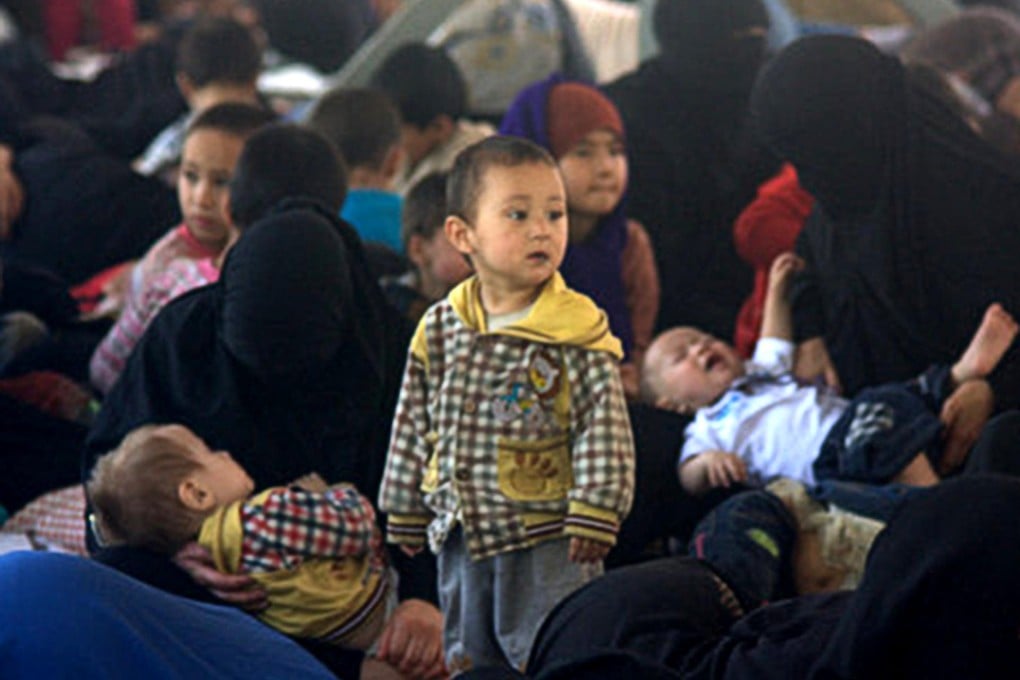200 'Turkish refugees' rescued from Thai slave camp turn out to be Uygurs
200, half of them children, found at southern Thai rubber plantation claim to be from Turkey to avoid being forcibly returned to China

Some 200 people rescued by police from a human trafficking camp in southern Thailand are suspected to be Uygur Muslims from Xinjiang , Thai police sources said yesterday.
They were discovered late on Wednesday at a rubber plantation in a hilly area where at least three camps used by smugglers of Rohingya Muslims from Myanmar were identified last year.
Those rescued included at least 100 children, most of them toddlers or still breastfeeding, and a pregnant woman. Many of the children cried while the women tried to quieten them as they sat under the tin roof of a car park at the Hat Yai immigration headquarters.

However, police sources say, the group shows strong similarities to Uygur asylum seekers who have been detained in Bangkok.
The Chinese consul general was called in yesterday, and Turkish officials also arrived from Bangkok. Turkish envoy Ahmet Idem Akay and colleagues are to interview the group over the next two days to assess their background and status. Uygurs, a Turkic-speaking people, form the biggest ethnic minority in Xinjiang in China's far west.